Search Results for 'British government'
48 results found.
Whiplash scourge costing British drivers
The British are in the process of learning a lesson that we learnt the hard way a decade ago. Their system for motor insurance is riddled with fraud and exaggeration. Levels of compensation are far too high and claims too frequent.
The Irish sang When Johnny Comes Marching Home...*
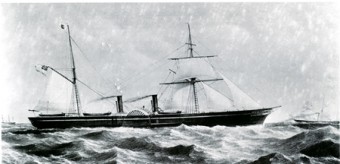
Stephen Speilberg’s magnificent film Lincoln made it clear that the Northern States of America, the Union, had justice and right on its side, when it came to deal with the cotton-based slave states of the south. Washington had objected to their attempt to enlarge its slave industry further west. Southern states were enraged at this interference. In an appalling miscalculation some states began to leave to Union, set up their own Confederacy (eventually including 11 states), and prepared to fight for its freedom to choose its own destiny.
‘No cheering crowds, no military parades, no public holidays’
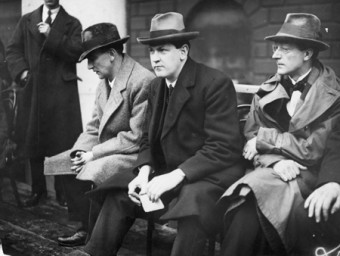
On December 7 1922, less than eight months after the Kilmilkin battle, Pádraic Ó Máille TD and his friend Sean Hales TD of Cork, walked out of a hotel on Ormonde Quay, by Dublin’s river Liffy. They just had lunch, and were on their way back to the Dáil in Leinster House, a short drive away. Ó Máille, Galway city and Connemara’s first TD, had been appointed Leas Ceann Comhairle (deputy speaker). As they reached their car a gunman stepped forward and opened fire. Both men were hit, but Hales was bleeding profusely. Although seriously injured Ó Máille managed to get Hales into the car and drove to the nearest hospital, where he collapsed. Hales was dead..
St Patrick's Day 1921 — murder and mayhem in Clifden
Just before 6am on St Patrick's Day 1921, Monsignor McAlpine, the Catholic parish priest of Clifden, Co Galway, was woken by loud banging on his door. “For God's sake, Canon, come down - the town is ablaze.”
Coals from Newcastle — Returned Irish may get British winter fuel payment says Connaughton
People who worked in Britain and who have retired to Ireland may be eligible for the British Winter Fuel Payment Allowance, according to Fine Gael Galway East TD Paul Connaughton.
Epic poem on Gibraltar killings re-published
AN EPIC poem, written by a man who spent many years living in Galway, about the killing of three IRA members in Gibraltar in 1988 has been published in a new edition.
‘A long and dangerous night in Galway’
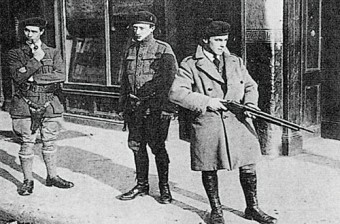
There was a fearful incident at Galway railway station on the evening September 8 1920. A larger crowd than usual waited for the Dublin train. The big story of the day was the Terrance McSweeney hunger strike in Brixton prison. The young Sinn Fein Lord Mayor of Cork was in his second month without food. The people of Ireland, and the Irish across the world, were totally focused on this drama. McSweeney died on October 25 after 74 days. The Dublin papers that evening would have had the latest health reports.
Daniel O’Connell leaves the Irish stage
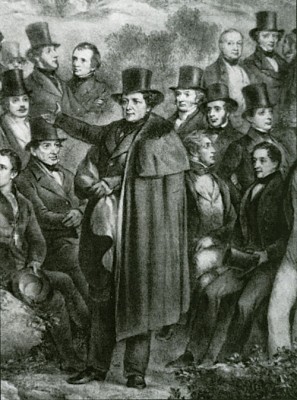
Having got him there, Clifden was not going to let Daniel O’Connell go easily. The meeting, on the edge of the town had been an unparalleled success, and the excitement prevailed. The organisers had constructed a huge pavilion ‘on the highest point of the town’, covered with canvass. It must have been of considerable size as 300 men sat at long tables, while 200 ladies sat in the adjoining galleries. At 8pm that Sunday evening, September 17 1843, O’Connell and other guests entered the pavilion with one of the Galway Temperance bands preceding him with lively tunes. His arrival was greeted with the ‘ most deafening cheers’, while the ladies waved scarves and handkerchiefs.
Clifden’s Parisian boulevards
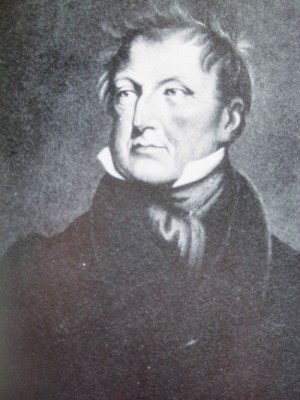
The man who opened Connemara to the traveller, and built an infrastructure to encourage trade and commerce in what was a wilderness of bog, mountain, and a rocky sea coast, was the Scottish engineer Alexander Nimmo. He was originally commissioned to investigate the possibility of draining the bogs, and replace them with a landscape of arable land suitable for farming. But Nimmo was the original man who thought outside the box. In his report of 1812 he outlined the total neglect of the region which had about 30,000 inhabitants, mostly living along her coast, eking out a bare subsistence livelihood. But he saw huge potential in the natural wealth of Connemara for tourism, and limited industry. He reported that there were large quantities of fish in its lakes and sea, and abundant seaweed for manure and for the manufacture of kelp. Its agriculture was undeveloped, its bogs badly harvested. All this neglect could be remedied

